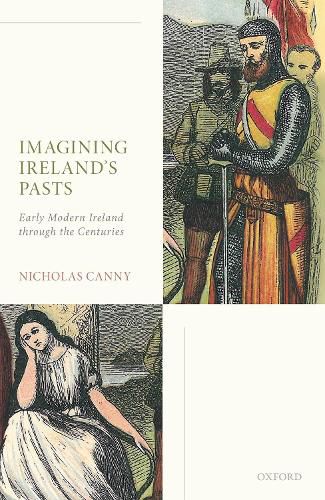Readings Newsletter
Become a Readings Member to make your shopping experience even easier.
Sign in or sign up for free!
You’re not far away from qualifying for FREE standard shipping within Australia
You’ve qualified for FREE standard shipping within Australia
The cart is loading…






Imagining Ireland’s Pasts describes how various authors addressed the history of early modern Ireland over four centuries and explains why they could not settle on an agreed narrative. It shows how conflicting interpretations broke frequently along denominational lines, but that authors were also influenced by ethnic, cultural, and political considerations, and by whether they were resident in Ireland or living in exile. Imagining Ireland’s Past: Early Modern Ireland through the Centuries details how authors extolled the merits of their progenitors, offered hope and guidance to the particular audience they addressed, and disputed opposing narratives. The author shows how competing scholars, whether contributing to vernacular histories or empirical studies, became transfixed by the traumatic events of the sixteenth and seventeenth centuries as they sought to explain either how stability had finally been achieved, or how the descendants of those who had been wronged might secure redress.
$9.00 standard shipping within Australia
FREE standard shipping within Australia for orders over $100.00
Express & International shipping calculated at checkout
Imagining Ireland’s Pasts describes how various authors addressed the history of early modern Ireland over four centuries and explains why they could not settle on an agreed narrative. It shows how conflicting interpretations broke frequently along denominational lines, but that authors were also influenced by ethnic, cultural, and political considerations, and by whether they were resident in Ireland or living in exile. Imagining Ireland’s Past: Early Modern Ireland through the Centuries details how authors extolled the merits of their progenitors, offered hope and guidance to the particular audience they addressed, and disputed opposing narratives. The author shows how competing scholars, whether contributing to vernacular histories or empirical studies, became transfixed by the traumatic events of the sixteenth and seventeenth centuries as they sought to explain either how stability had finally been achieved, or how the descendants of those who had been wronged might secure redress.